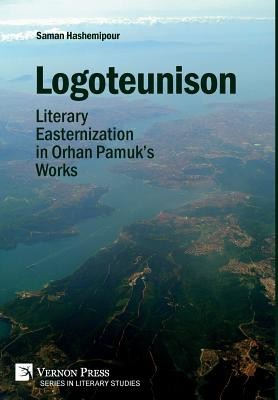
- We will send in 10–14 business days.
- Author: Saman Hashemipour
- Publisher: Vernon Press
- ISBN-10: 1622736060
- ISBN-13: 9781622736065
- Format: 15.2 x 22.9 x 1.1 cm, hardcover
- Language: English
- SAVE -10% with code: EXTRA
Reviews
Description
This book explores the enduring European and American interest in literary works portraying Eastern themes and perspectives. It examines how literary Easternization, termed "Logoteunison", manifests in Western literary works that reflect, embody, or deploy Eastern values or concepts; or else ape, mimic, parody, or pay homage to various Eastern and especially Persian masterpieces. Such repurposing or appropriation is frequently powered by features from the postmodern toolkit: intertextuality, metafiction, fragmentation.
The novelist Orhan Pamuk has been influenced (arguably unwittingly) by literary Easternization. In his Western-style works, Pamuk channels Eastern values, creating texts nevertheless in the Western mold and primarily aimed at Western readers. Pamuk uses Istanbul--the writer's birthplace, a city between two worlds, a halfway land binding together Asia and Europe--both as a physical setting and to symbolically mediate Eastern and Western worldviews.
This title has a threefold purpose: by establishing a theoretical and contextual background for Eastern masterpieces and forming a distinctive review of Eastern culture as filtered through Pamuk's works, it suggests a new theory in literary criticism, one which aims to adopt a novel philosophical approach to the study of literary Easternization.
Students of comparative and Turkish literature will find in this volume detailed background information about Turkish, Persian, and Arabic masterpieces, as well as their significant cultural correspondences and affinities, especially regarding their employment of Sufi themes. Any student or scholar interested in the postmodern cross-fertilization of Middle Eastern and Western literature will find this work fascinating and rewarding.
EXTRA 10 % discount with code: EXTRA
The promotion ends in 19d.18:09:07
The discount code is valid when purchasing from 10 €. Discounts do not stack.
- Author: Saman Hashemipour
- Publisher: Vernon Press
- ISBN-10: 1622736060
- ISBN-13: 9781622736065
- Format: 15.2 x 22.9 x 1.1 cm, hardcover
- Language: English English
This book explores the enduring European and American interest in literary works portraying Eastern themes and perspectives. It examines how literary Easternization, termed "Logoteunison", manifests in Western literary works that reflect, embody, or deploy Eastern values or concepts; or else ape, mimic, parody, or pay homage to various Eastern and especially Persian masterpieces. Such repurposing or appropriation is frequently powered by features from the postmodern toolkit: intertextuality, metafiction, fragmentation.
The novelist Orhan Pamuk has been influenced (arguably unwittingly) by literary Easternization. In his Western-style works, Pamuk channels Eastern values, creating texts nevertheless in the Western mold and primarily aimed at Western readers. Pamuk uses Istanbul--the writer's birthplace, a city between two worlds, a halfway land binding together Asia and Europe--both as a physical setting and to symbolically mediate Eastern and Western worldviews.
This title has a threefold purpose: by establishing a theoretical and contextual background for Eastern masterpieces and forming a distinctive review of Eastern culture as filtered through Pamuk's works, it suggests a new theory in literary criticism, one which aims to adopt a novel philosophical approach to the study of literary Easternization.
Students of comparative and Turkish literature will find in this volume detailed background information about Turkish, Persian, and Arabic masterpieces, as well as their significant cultural correspondences and affinities, especially regarding their employment of Sufi themes. Any student or scholar interested in the postmodern cross-fertilization of Middle Eastern and Western literature will find this work fascinating and rewarding.


Reviews